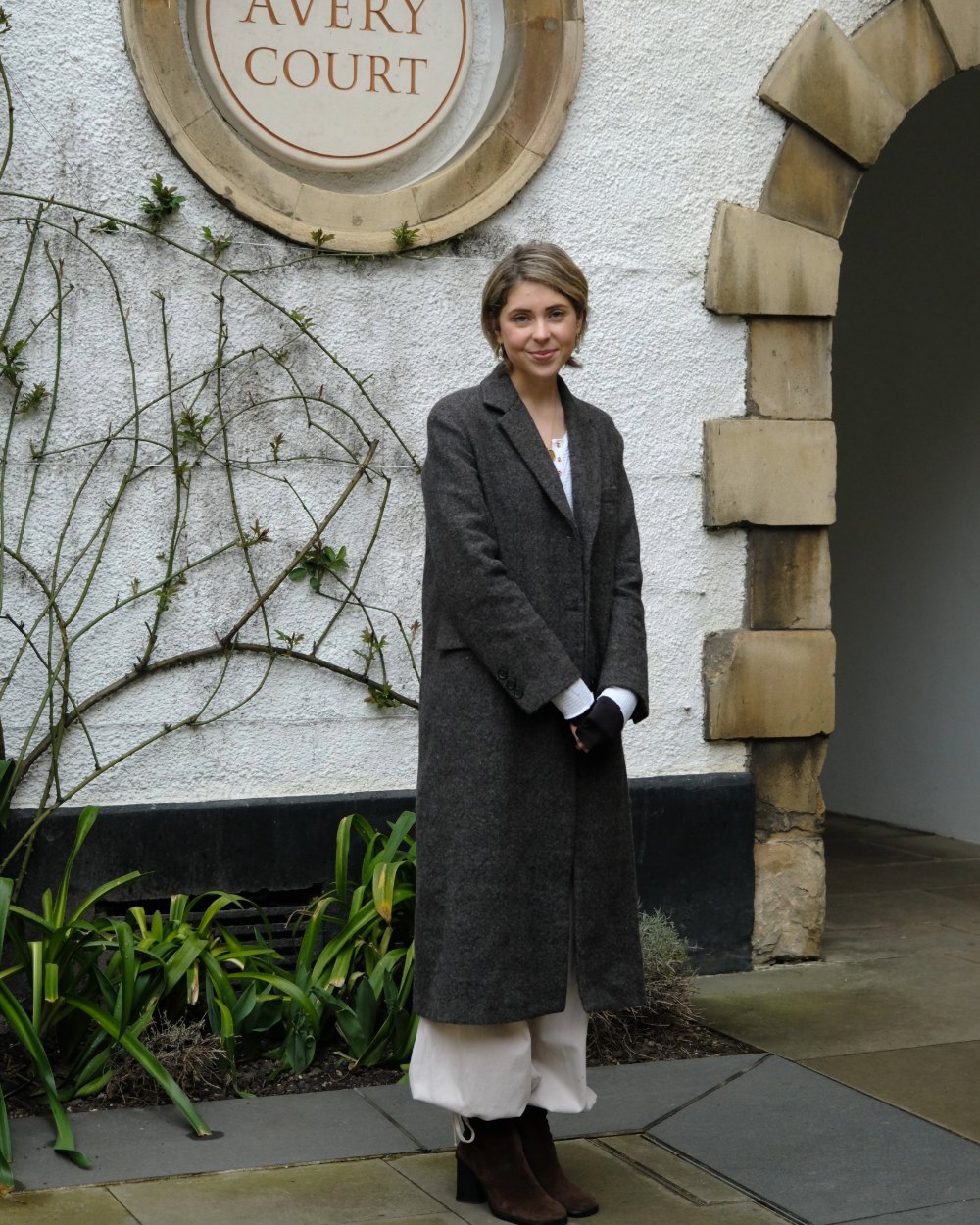Meet Lucia Laffan: altering the way we look at fashion

Making ethical fashion more fashionable has been a long-held passion for Trinity Hall HSPS undergraduate and Laidlaw Scholar Lucia Laffan.
Thanks to the Laidlaw Foundation, Lucia has seen the real-world impact ethical fashion can have on a community and is using her knowledge to change the global fashion industry for the better.
Lucia spent the first few months of the Laidlaw Leadership and Research Programme getting to grips with the motivations and differences in the business models of both ethical and fast fashion brands, before seeing how ethical clothing companies work within communities. She has since been inspired to create an ethical clothing brand with its own “renewable” philosophy.
At the start of her programme, Lucia conducted market research on the perceptions of popular Gen-Z brands and the purchasing habits of young people. Lucia then spent 6 weeks in Kerala, India, as part of her Leadership in Action project, joining the ethical clothing company Swara Voice of Women. Lucia was taught how a garment could be ethically sourced, made and sold, and how every part of the production cycle fuelled the independence of women in the local community.
Lucia said “My time [with Swara] revealed to me the potential of businesses to be used as a force for good on any number of issues and I was intrigued by the differing approaches to facilitating female independence.”
The project shed light on just how much impact a rehaul of the fast fashion industry could have and the challenges Lucia might face: “Changing the fast fashion industry to be more environmentally and socially conscious is dependent on first changing the mindset of the purchaser, which will not create more profit and rather eat into a company’s marketing resources.”
Upon returning to her studies, Lucia has created her brand ‘The Flip’ to steer the industry in a new direction. Its philosophy is to create clothing that can be restyled multiple ways to make new outfits, reducing waste.
“I would advocate that the fashion industry needs to scale down its operations and lean towards different styling as opposed to constant purchasing.”